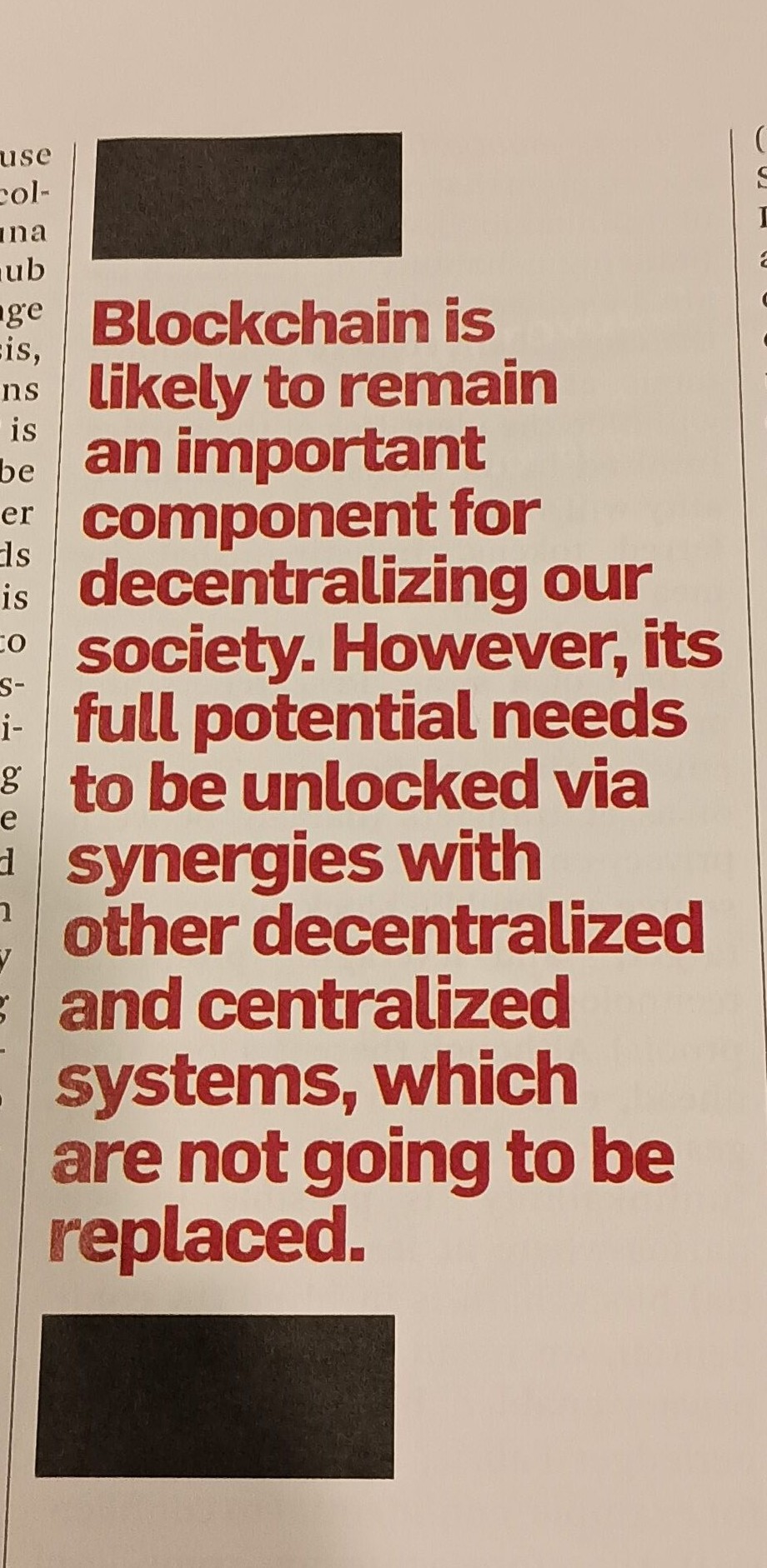Mark Dominus
mjd@mathstodon.xyzYesterday I saw with dismay that I had received a new issue of “Communications of the ACM”.
I wondered briefly how I could express its terribleness to someone who hadn't seen it. Then I flipped it open to a random page and saw this.
Brett R
swiftone@mastodon.online@mjd I haven't paid close attention to blockchain since the early bitcoin days, just spot checked now and then. Is it still fair to say that (outside of crypto scams) blockchain remains a mathematically interesting solution in search of a problem?
As someone with my gaps of knowledge, the critical word in your pic is "remains", because outside of vague buzzwords and web3 pipe dreams, I've never heard that blockchain WAS a part of decentralization.
Am I missing anything critical?
RanaldClouston
RanaldClouston@fediscience.org@mjd that's terrible, but not even the worst thing I've read in CACM this year: https://fediscience.org/@RanaldClouston/111707980928981018
Ricardo Signes 
rjbs@social.semiotic.systems
@mjd they … sometimes they publish good stuff. But. Wow.
Jeffy 🏳️⚧️🏳️🌈🇺🇦 ❤️🇱🇺
godofbiscuits@sfba.socialThey should have sent a poet...y'know, to get more profound LEARNINGS out of it.
Clifton Royston
CliftonR@wandering.shopGood god.
I recall at one time it was a fairly credible journal, but this says a great deal about its current state of devolution.
Mark Dominus
mjd@mathstodon.xyz@swiftone The widely used Git version control system depends on blockchain technology for its security, to allowing many people to contribute changes independently while preventing anyone from tampering with file contents or with the change history. If you're not familiar with Git, you should definitely check it out, it's a superb application.
My main objection to the quoted passage is that it uses a great many complicated words to express a very small amount of meaning. To take the most obvious example, "other decentralized and centralized systems" means just "other systems".
Brett R
swiftone@mastodon.online@mjd Thanks for the answer. I'll have to revisit my understanding of blockchain - I knew git was built on hashes (SHA256?) but I didn't think that qualified as blockchain...but then I realize I don't have really have a solid definition, so it's time for some reading.
MarkD
markd@hachyderm.io@mjd @swiftone Er, no. Git does not use blockchain. A git repo is not decentralised, it does not require a quorum and if your git site goes down, submissions stop. It also doesn't burn a MW of power to reach a quorum before a push is accepted.
The only commonality is a change-log based on an sha hash.


